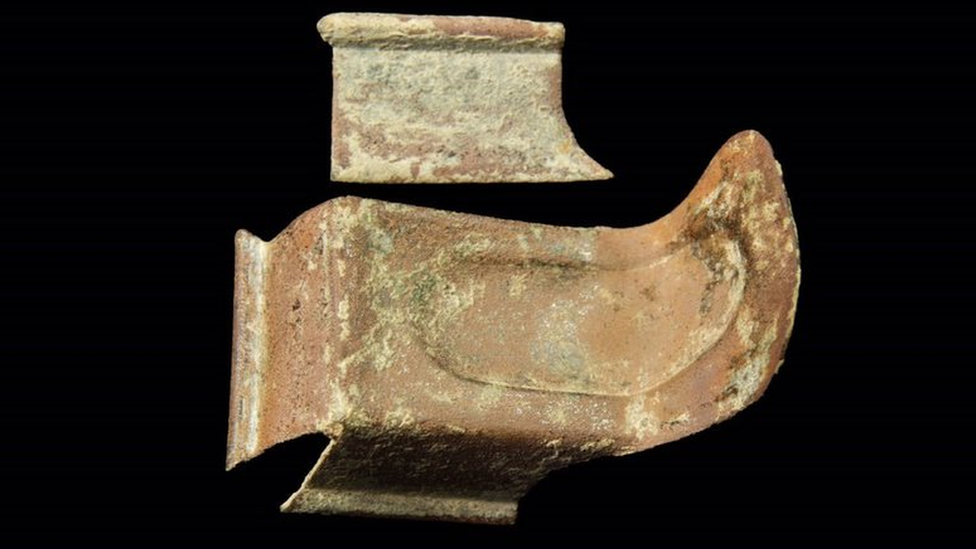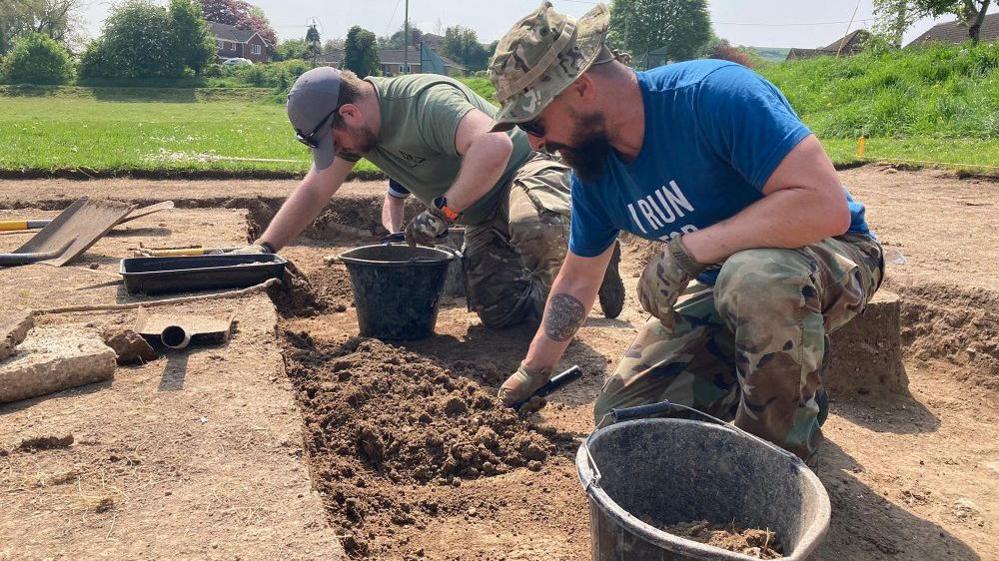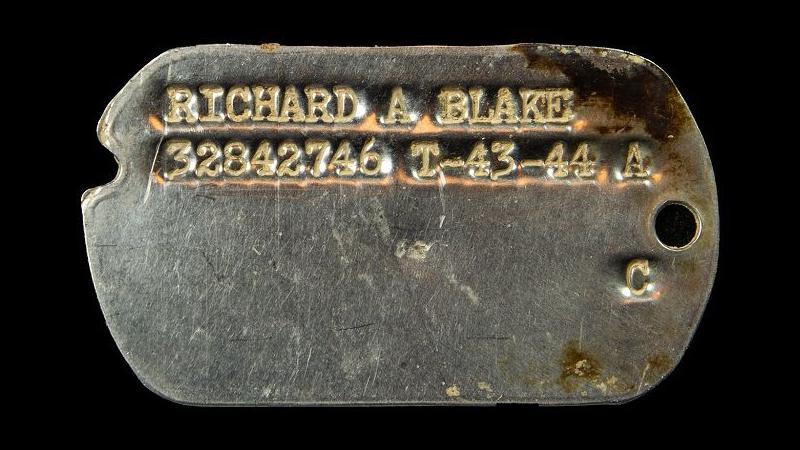The idyllic village that hosted the 'Band of Brothers'
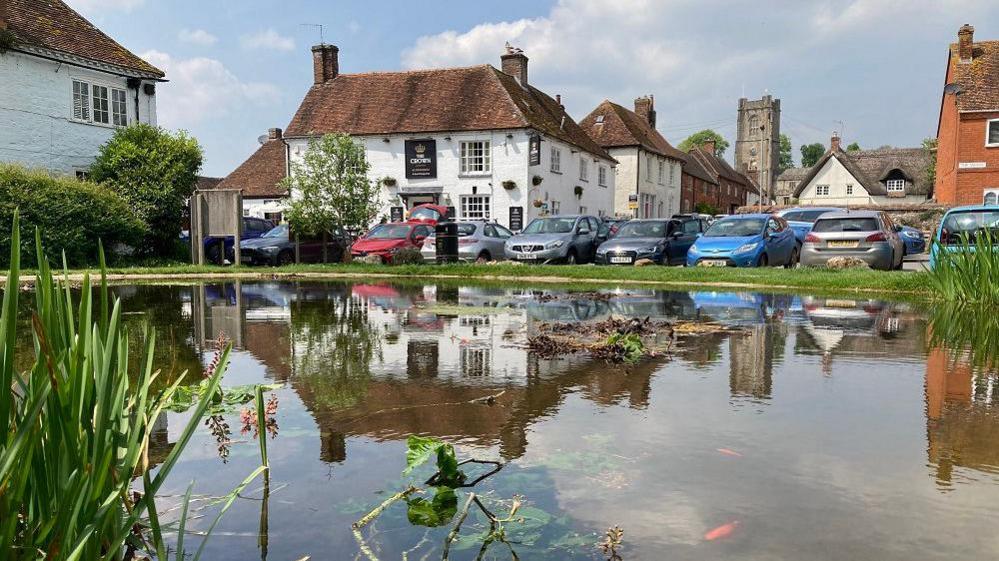
Image caption, Aldbourne still has the original pubs frequented by the soldiers stationed there in World War Two
1 of 3
- Published
On 6 June 1944 thousands of men from the Allied forces attacked German troops in Normandy, France, as part of the military operation known as D-Day.
Many of them had prepared for the operation in the south of England, including the US Army's Easy Company, of the 101st Airborne Division. The group of men, better known now as the "Band of Brothers" after the TV series of the same name, left a lasting impression on the Wiltshire village where they were based.
Aldbourne is an idyllic village in the Wiltshire countryside, surrounded by chalk hills and full of character.
The village green, a pond and old church paint a pretty picture of English country living, but it is also where, over the course of World War Two, British and Canadian forces were based.
And then, in 1943, the Americans also arrived.
This included the now famous US paratrooper unit Easy Company - the "Band of Brothers" immortalised by Steven Spielberg and Tom Hanks in the 2001 television series, based on the book by Stephen E Ambrose.
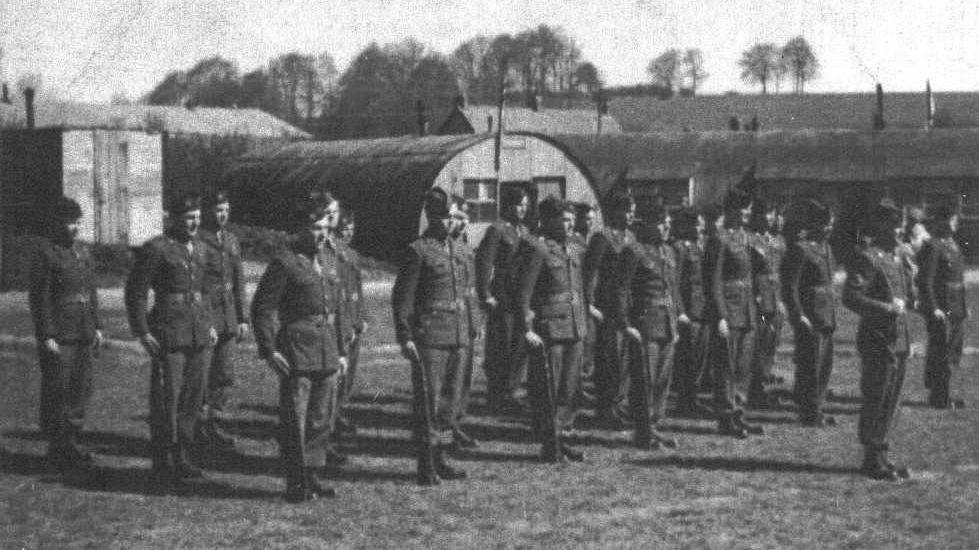
Aldbourne Heritage Centre has displays about Easy Company's time in the village
Many of the officers stayed in the old Rectory or people's homes, with their headquarters at Littlecote House. Other soldiers were housed in Nissen huts on Farm Lane, and overflows in the likes of the stables at Hightown.
The village had five pubs. The Blue Boar was the officers' pub, while the others served all soldiers, including The Crown, which remains open to this day and has a discreet blue plaque on the wall.
Simon Crisp, villager and landlord of The Crown, said the pub's connection to Easy Company attracted people from far and wide - including hundreds of Americans who came on tours each year.
"For a very small village, the ties with America are quite big," he said.
"For me as a villager, and with veterans in my family, it's all about respect."
Sophie Parker tells the story of Easy Company’s stay in a Wiltshire village.
For the local people in 1943, the arrival of the "yanks" was an exciting prospect.
They brought with them sweets, chewing gum and dances.
In an oral history recorded in 2006, external by the Memorial Hall Trustees, Audrey Barret said: "They were all so friendly. To young people - and the boys - it was exciting. It was really an event when the Americans came."
Ms Barret remembered attending dances with them, adding: "They would come into our house and write letters and chat and laugh."
Rosemary Connor was the daughter of the local barber and spoke to the BBC a decade ago when she was 86.
She said: "We took to them fairly quickly. They could write home and tell their folks they had their hair cut by a lady barber."
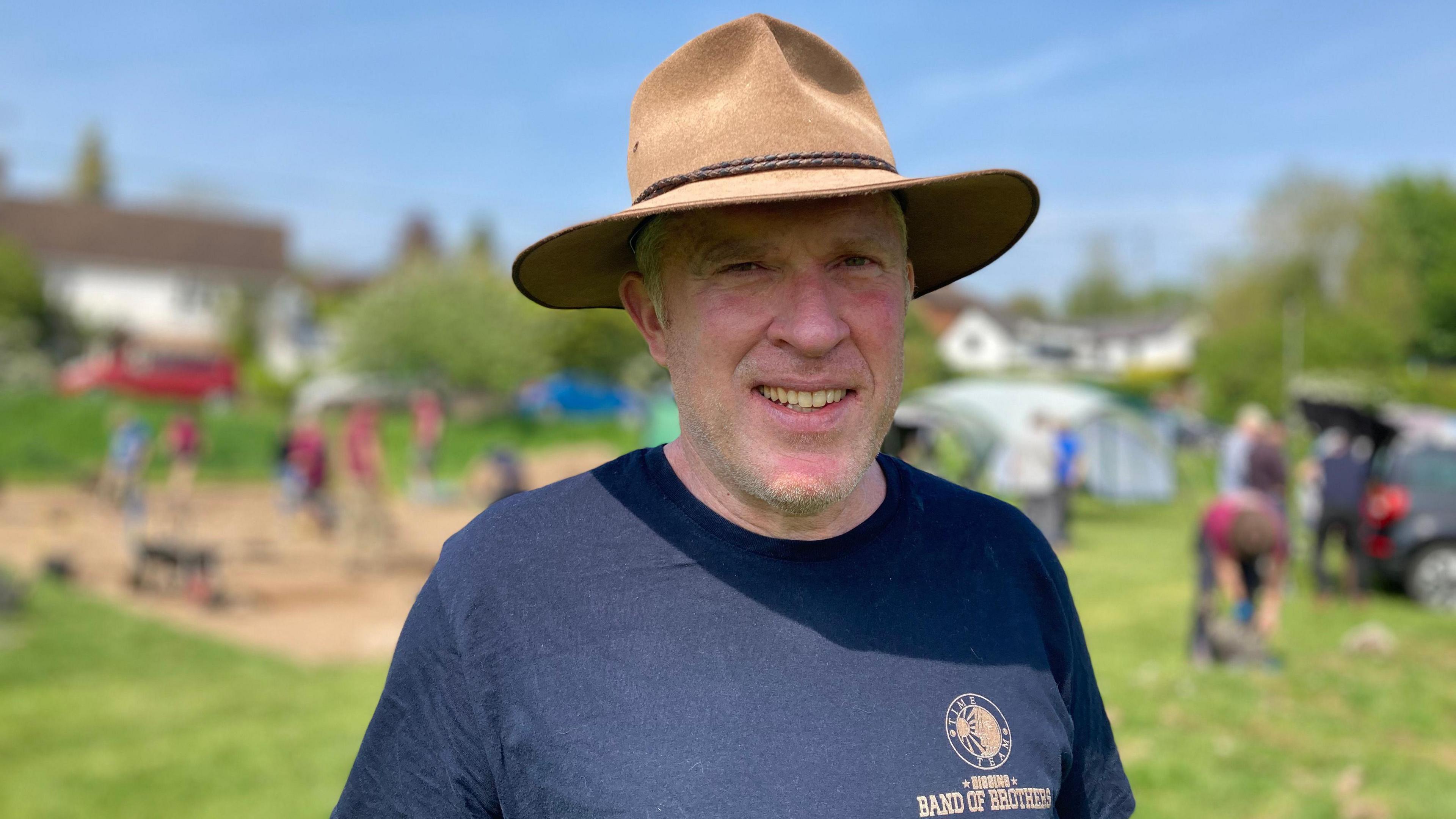
Archaeologist Richard Osgood leads annual digs working with the Ministry of Defence, using archaeology to help veterans
Archaeologist Richard Osgood - who is rarely seen without his Indiana Jones-style hat - said that for the Americans, the village was "like waking up on a film set", with thatched roofs and roses growing on trellises.
However, with the war, the quiet village became much busier.
"It would have been bustling, would have people in jeeps, lots of training going on nearby. Hearing gunshots, maybe bigger things," he said.
In the village, the Easy Company prepared for the D-Day invasion.
The paratroopers flew from Upottery in Devon in the early hours of 6 June 1944, before parachuting into Normandy.
Dropped behind enemy lines, they would go on to fight numerous battles across Europe.
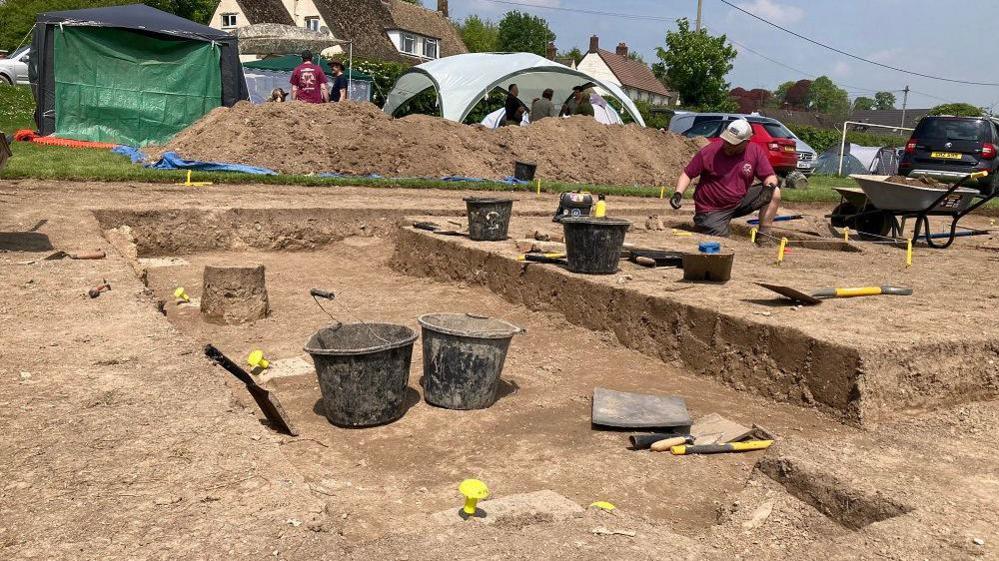
Remains of prefabricated Nissen huts lie just below the surface of the village playing field
Evidence of their time in Aldbourne lies just beneath the grass of the village playing field, which 80 years ago was covered in Nissen huts, the crescent-shaped buildings that housed the soldiers.
For the past several years, there have been archaeological digs at the site as part of a scheme called Operation Nightingale, led by Mr Osgood.
Veterans and serving personnel are invited to work on the digs and say they feel a connection to the people whose lives they are finding out about too.
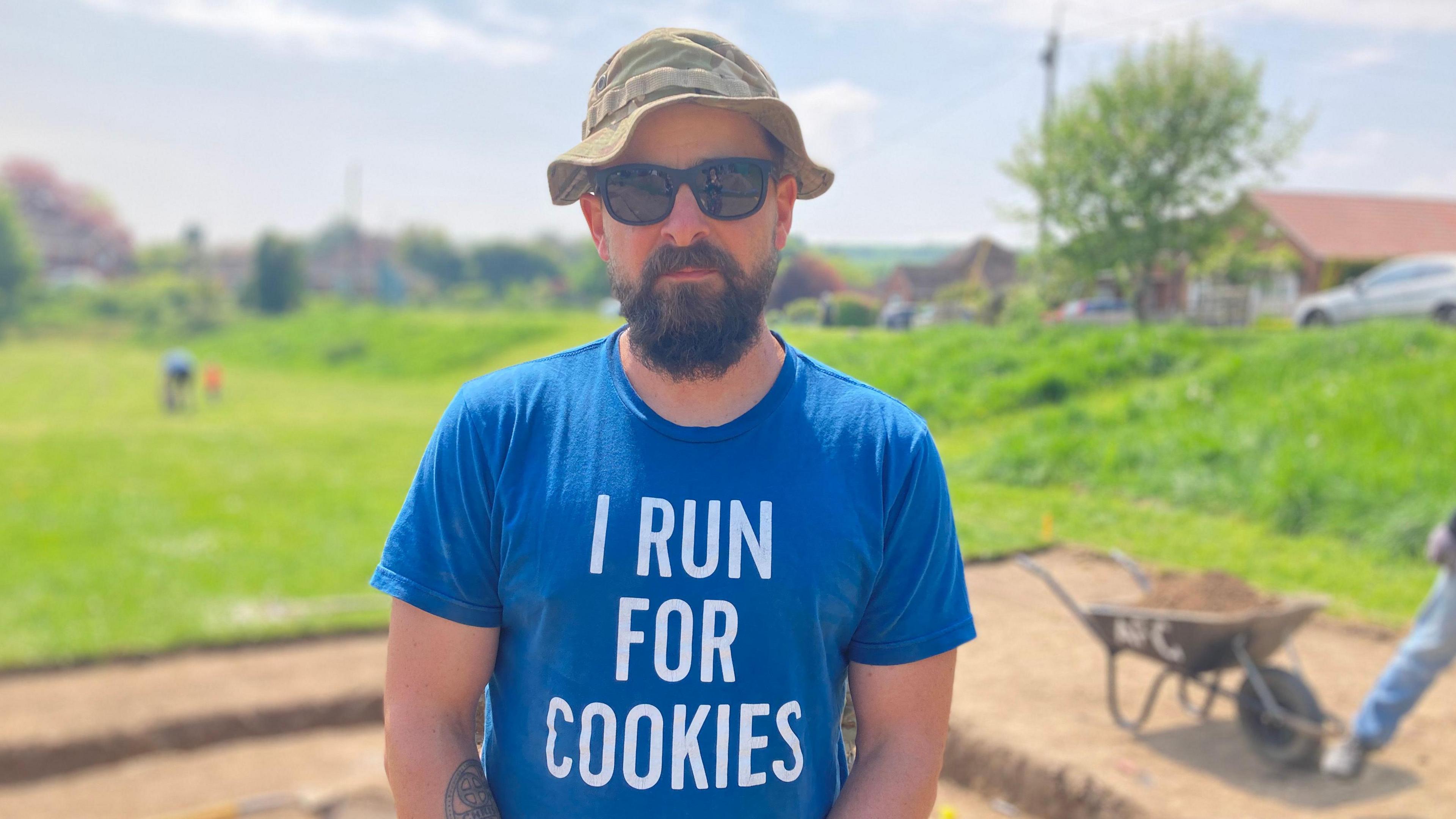
US army veteran Patrick Carter - once part of 101st airborne - said much of what the digs unearth reminds him of army life
Patrick Carter was a paratrooper with 101st airborne in the US and took part in a dig in May this year.
"With deployments, there's a lot of training beforehand and there's always a lot of boredom," he said.
"I can imagine sitting in one of these huts, bored, playing cards or playing marbles, like we keep finding."
Meanwhile, UK Army veteran Chris Burdon found Operation Nightingale so beneficial, he has become a professional archaeologist.
He said: "Combat is combat. The experiences are very, very similar.
"Even the life in camp - having to wake up early for morning runs, eating terrible food in the cookhouse, it still happens today.
"There is that connection there. Politics have changed, but the way soldiers live and what they do hasn't changed at all."
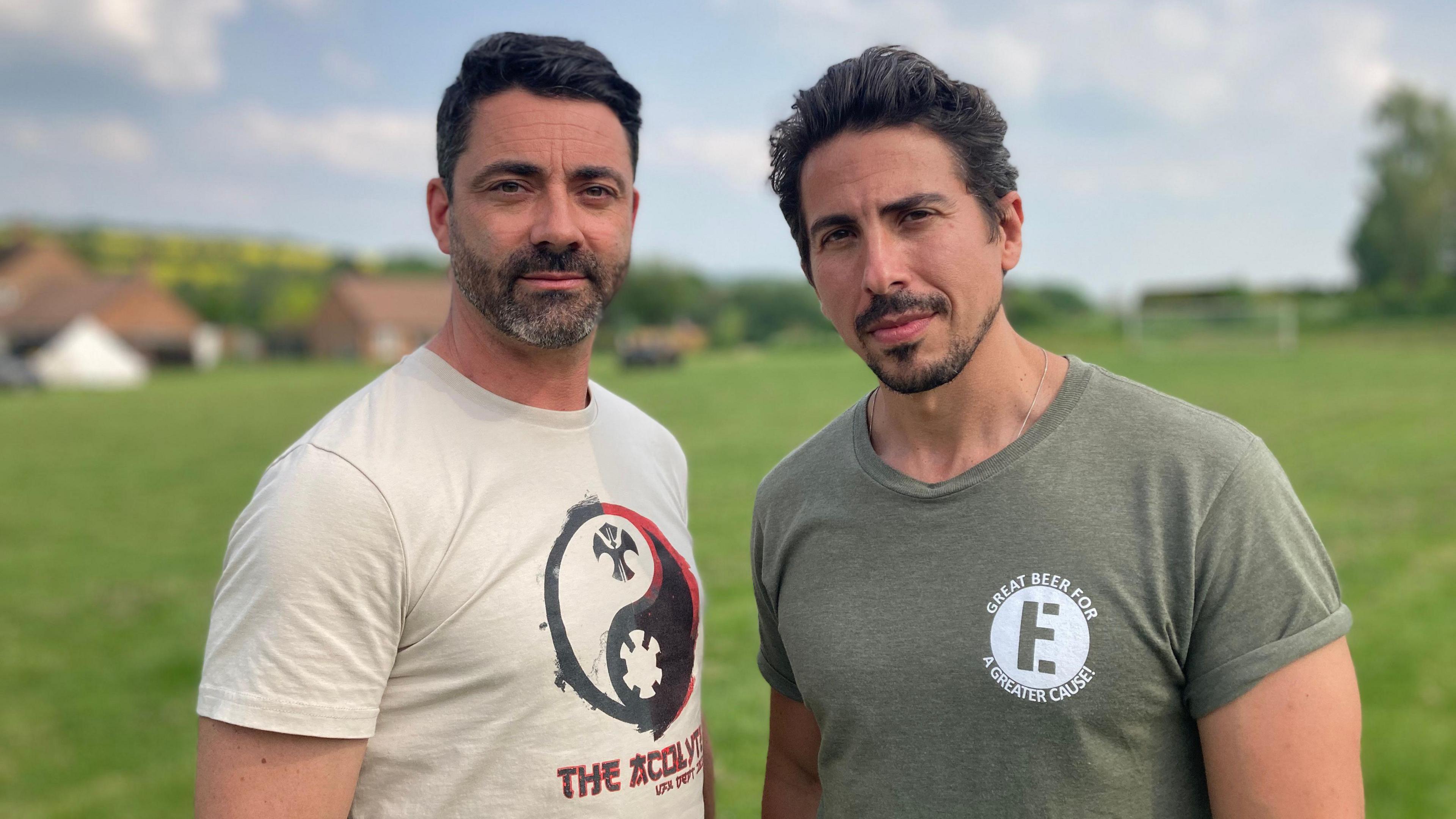
Band of Brothers actors Alex Sabga-Brady and Christian Black visited the dig site in Aldbourne this year
More than 20 years after the Band of Brothers television series, many of the actors also return to the village, with some also taking part in the digs.
Rick Warden, who played Lieutenant Harry Welsh, Alex Sabga-Brady, who played Corporal Frank Mellet, and Christian Black, who was Walter Hendrix, visited in May.
Mr Sabga-Brady said the actors were given the chance to meet the real veterans before filming.
"Seeing what it was all about, what they would do for the man next to them, that's what really struck with me personally," he said.
"To try and emulate and capture that was the essence of what that show was."
But he said the Band of Brothers story was about more than just Easy Company.
"That's the focus, but it really does tell a picture for a lot of what happened and the emotion of what happened [during the war]," he said.
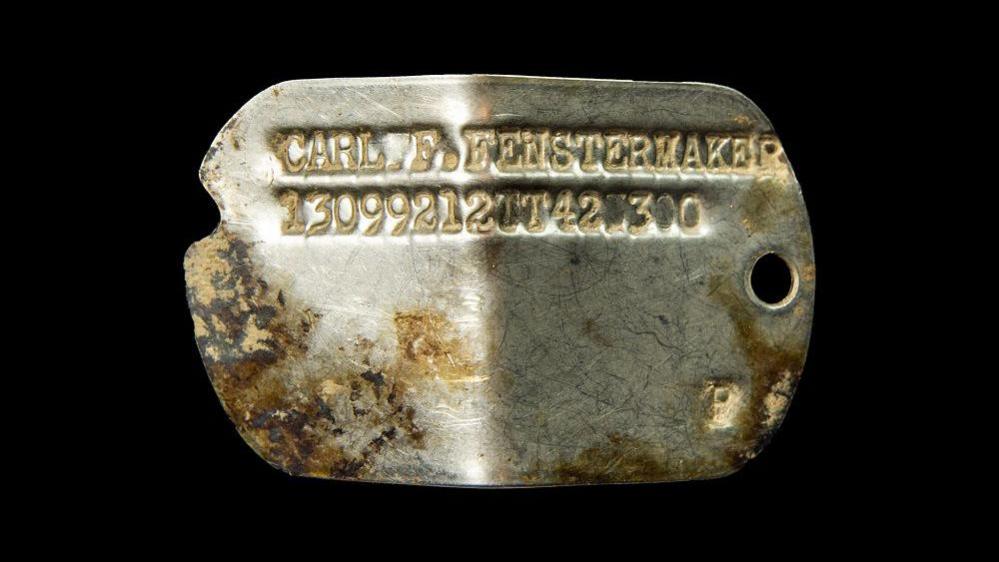
Soldiers' dog tags have been found on the digs, including this one for Carl Fenstermaker, one of the original Easy company
Finds from the digs have included a "clicker" designed for use on D-Day itself, dog tags with men's names on and a pull for a parachute.
Metal detecting in an Aldbourne resident's back garden also uncovered a complete American World War Two canteen (water bottle).
The artefacts go to Aldbourne Heritage Centre, which now has so many items it had to have an extra display case made.
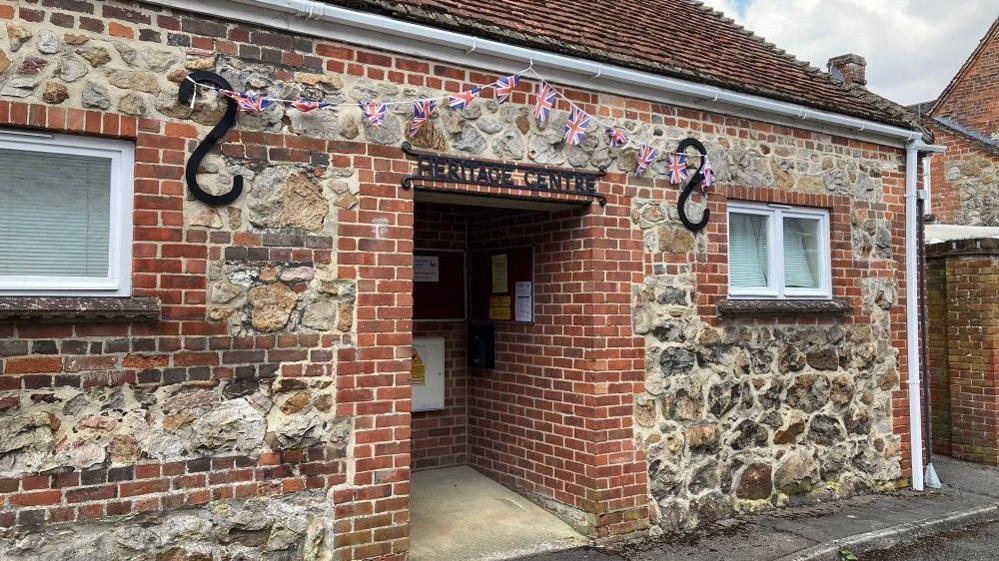
Aldbourne Heritage Centre is one of the places American tourists visit
Terry Gilligan founded the centre nearly 10 years ago and said Easy Company is now a huge part of the village's identity.
"We have a massive history and this is one piece of it, but it's probably now the most important piece," he said.
This is not least driven by the many visitors, especially Americans, who come to find out more about the Band of Brothers and where they trained ahead of D-Day.
"The village loves seeing visitors - they will see the coaches pull into the village," Mr Gilligan said.
"We look after them."
This coming weekend, The Crown pub will be marking D-Day with the Aldbourne Big Band playing there.
Landlord Simon Crisp said: "As a proud Briton, it's nice that we can support the community, support veterans."
Follow BBC Wiltshire on Facebook, external, X, external and Instagram, external. Send your story ideas to us on email or via WhatsApp on 0800 313 4630.
- Published8 May 2023
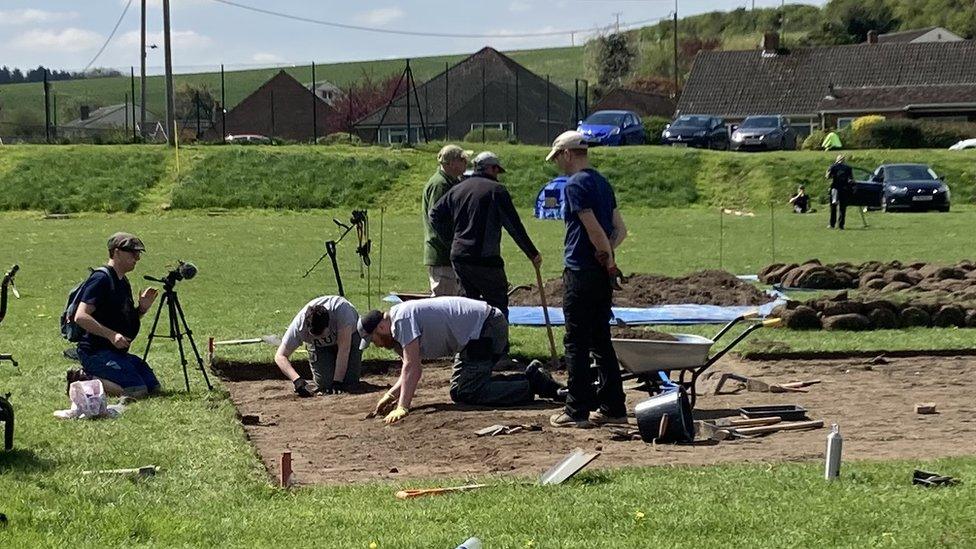
- Published8 June 2022
